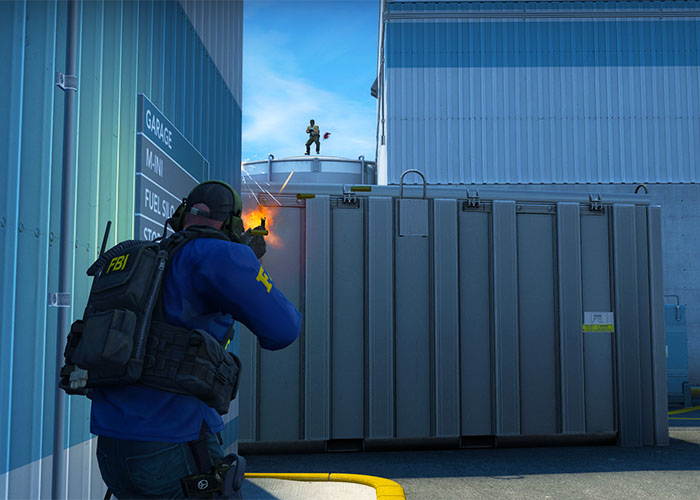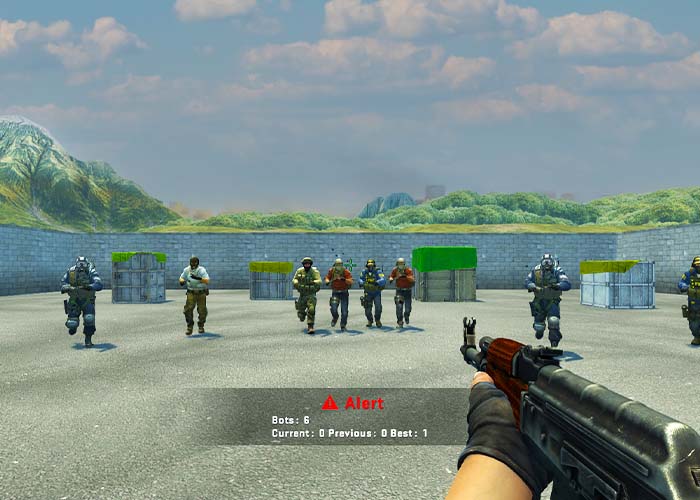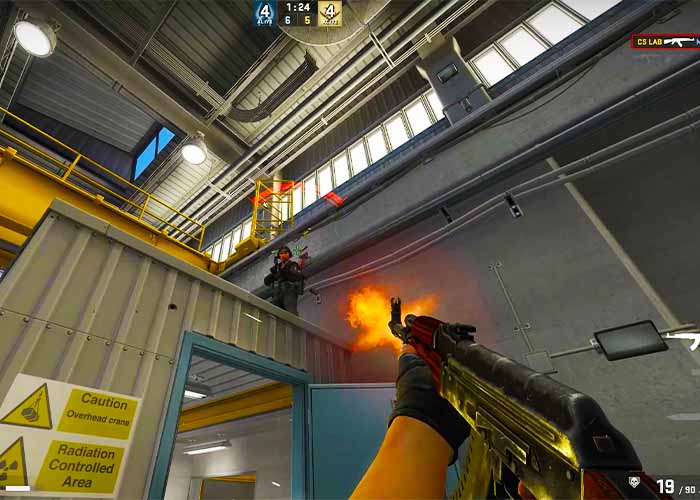Why good teamplay matters
If a team does not play well together, problems will quickly arise and the opposite team can read and use them against them. The interaction between you and your teammates is therefore one of the most important factors for winning a game.
Being a good teammate means that you encourage other players by being positive and supportive when they make mistakes. Likewise, when they do something good for your team, you compliment their game by praising their effort.
Even if you’re not on a team but playing with random people there’s still plenty you can do to be a good teammate.
Let’s take a look at how you can better support your team.
How to best support your team
As mentioned, there is a lot you can do to support your team and be a good teammate. Here are five actions you can take for you and your team to come closer to victory.
1. Throw utility to assist your teammates
Imagine a situation where your teammate is further ahead and ready to peek at an angle where the opponent is likely standing. Meanwhile, you are standing further back with your pockets full of utility. Here it’s great to put yourself in a position to throw a flashbang, hoping that the enemey will be blinded. You could also throw molotovs at the most common position before the entry fragger starts running into the site.
2. Drop weapons if you have enough money
If you have money to spare, it is a good idea to distribute weapons and grenades to those who cannot afford them themselves. This will make the team stronger as a whole. Always think and act based on what is best for the team and avoid being greedy by keeping all the money for yourself. Remember, that not all players ask for a drop if they don’t have enough money, so be aware and check if anyone needs a weapon.
3. Give good info
As a team, it’s highly important to communicate with each other about what tactics you are using and generally speak about what happens during the rounds. Even if you’re not the in-game leader who is responsible for the calls, you can easily bring useful information to the table.
Most importantly, you give info as soon as you are dying about where the enemy’s position is. But it can be just as important to give info when you leave an area or if you hear something useful around the map. Maybe you can hear someone rotating away from the bomb site you are standing closest to or you become aware of the opponent has used most of their utility.
4. Have a positive attitude
If you often complain and express your frustration out loud when you die, then you should consider working on a more positive attitude. When you have a bad attitude, it easily affects the other players and contributes to a bad vibe. This can quickly be reflected in the team’s performance where it becomes harder to cooperate with each other.
Instead of expressing your frustration about a bad play or an obvious mistake you make, accept that not all games are great and that sometimes you don’t play your best.
5. Engage mentally in the game
The best conditions are created when you are mentally engaged in the game and you actively interact with the other team members. If all five players on the team are fully committed, it will create greater cohesion. This is the ultimate state the players can achieve among themselves. Here, the support, trust, and respect for each other will be the highest.
Unfortunately, more people tend to shift their focus away from the game when they die where, instead of following the game, they are watching their phone, or surfing the Internet. This is inappropriate, as the brain is disturbed by the many shifts and the subconscious mind is filled with impressions that take attention away from the game.
The importance of building trust with your teammates
One of the most important factors contributing to team success is trust. If you don’t trust each other, it can reduce the whole team’s focus and performance. It can also contribute to team members losing their confidence.
Creating trusting friendships with your teammates, both inside and outside of the game, can help the team achieve its full potential. If you find that your teammate is annoying, there’s a greater risk that you won’t trust each other to the same extent in-game as if you had high trust.
To build more trust you have communicate openly and honestly with each other about the problems. It’s important that you’re not afraid to admit your mistakes or talk about your weaknesses. Sit down to align expectations. Here you can talk about your common goals and dreams for the team and at the same time define your individual roles.
A coach can be useful in these situations to facilitate the process so that everyone is heard and no one is left with the feeling that they are not part of the team.




